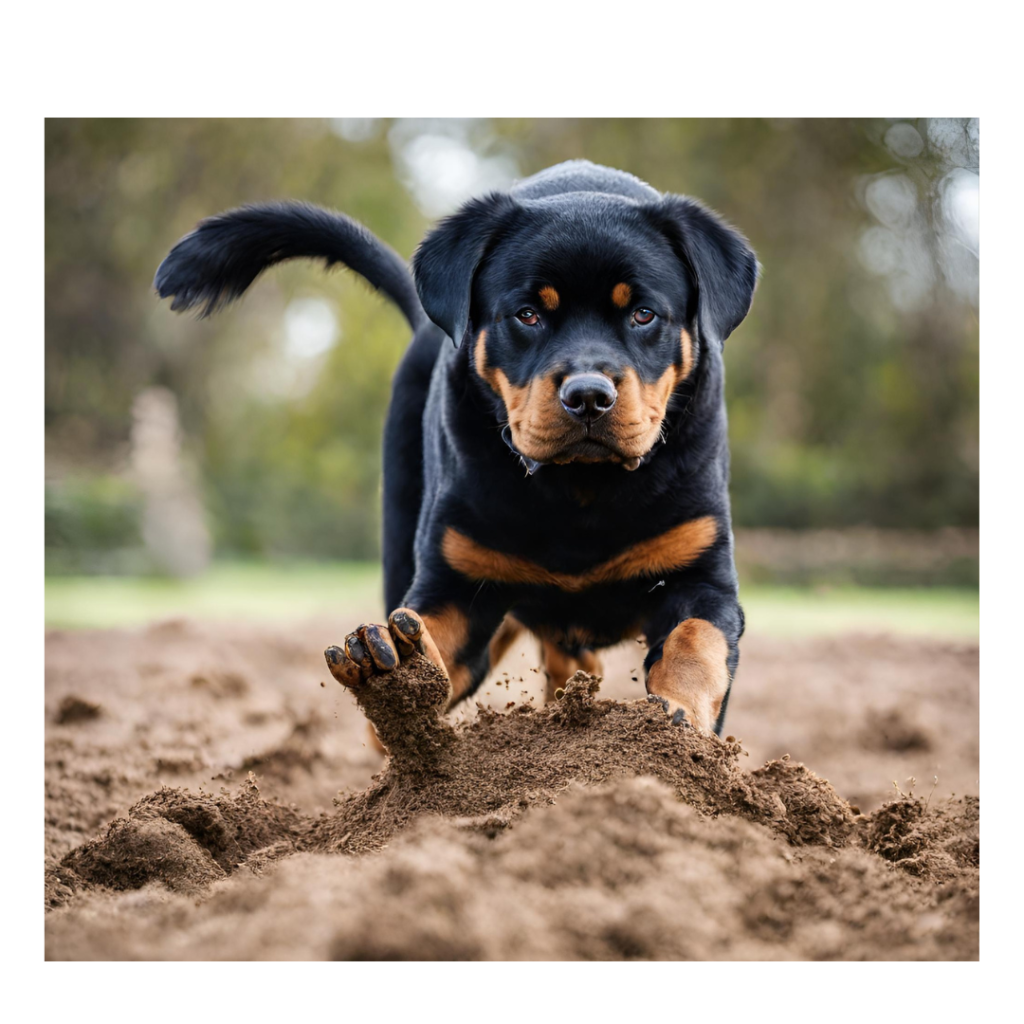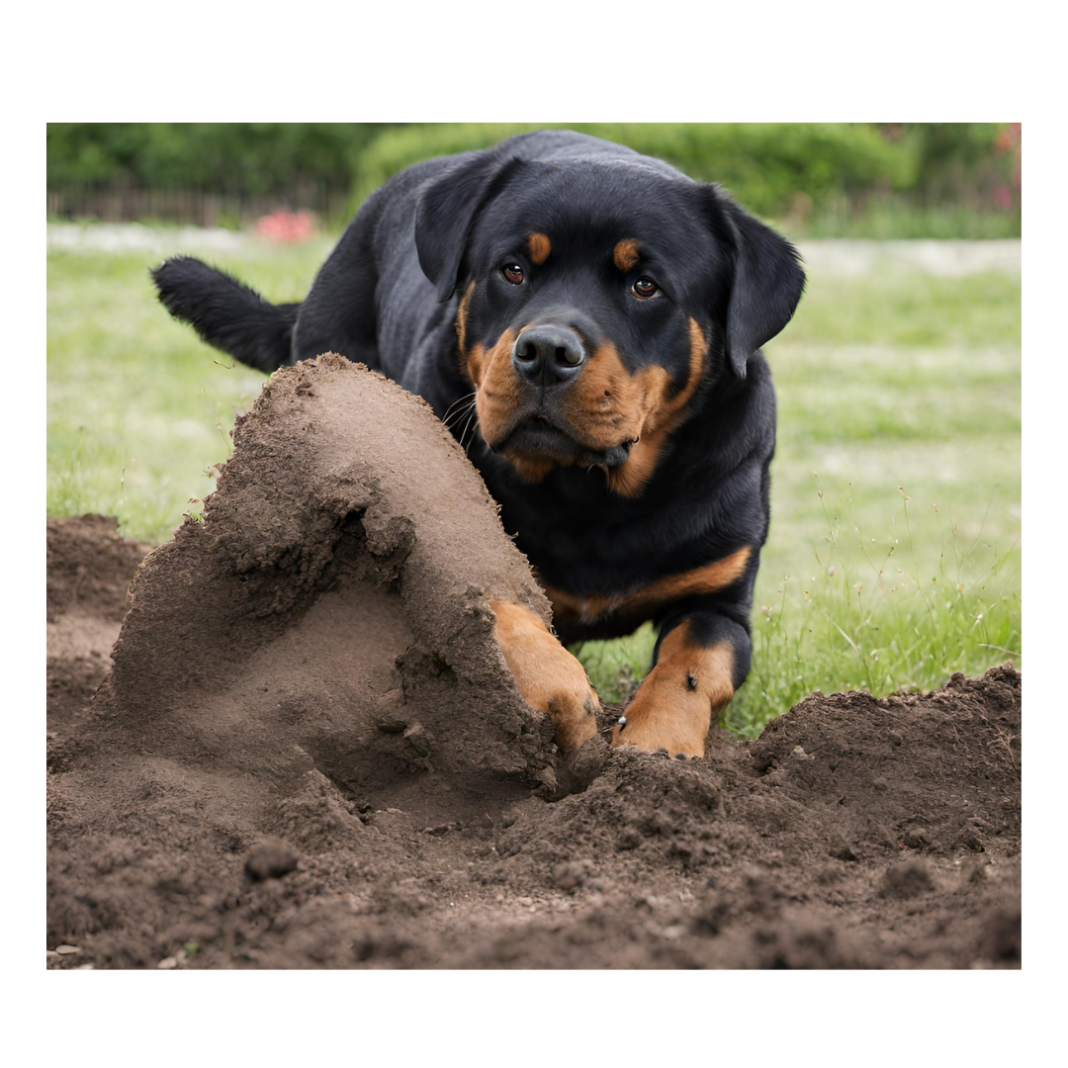In this comprehensive article, we will delve into the intriguing world of Rottweiler digging behavior. Rottweilers are renowned for their loyalty, strength, and intelligence, but they also have a propensity for digging. Whether you’re a seasoned Rottweiler owner or considering bringing one into your family, understanding and managing their digging tendencies is crucial for a harmonious life together.
Rottweilers are known for their deep loyalty and protective instincts. However, one aspect of their behavior that often perplexes and concerns owners is their penchant for digging. In this article, we will explore the reasons behind Rottweiler digging behavior and provide practical strategies to manage it effectively.
Why Do Rottweilers Dig?

Understanding the motivations behind your Rottweiler’s digging behavior is the first step to addressing it. By nature, Rottweilers are descendants of working dogs, and digging was once an essential part of their job.
Puppy Phase: When Rottweiler Digging Begins
Digging tendencies often emerge during a Rottweiler’s puppy phase. This is a crucial time to establish boundaries and habits that will shape their behavior as adults.
The Importance of Exercise
Regular exercise plays a significant role in managing digging behavior. Learn how to channel your Rottweiler’s energy productively to reduce the urge to dig.
Rottweiler Digging as Communication
Your Rottweiler might be trying to communicate something through digging. Discover what their actions might be telling you about their needs and emotions.
Creating a Digging Zone
One effective strategy is to designate a specific area where your Rottweiler is allowed to dig freely. This can help satisfy their instinctual drive while preserving your garden.
Positive Reinforcement Training
Positive reinforcement is a powerful tool for shaping your Rottweiler’s behavior. Find out how to use rewards and praise to encourage desirable habits.
Deterring Digging
Learn what not to do when addressing digging behavior. Avoid common mistakes that can worsen the situation or harm your relationship with your Rottweiler.
Rottweiler Digging and Health Concerns
Sometimes, digging can be a sign of underlying health issues. Understand the red flags and when to seek veterinary advice.
Environmental Enrichment
Stimulating your Rottweiler mentally is essential. Explore ways to provide mental challenges and prevent boredom, which can lead to digging.
Seeking Professional Help
If digging becomes a persistent problem, seeking professional assistance from a dog trainer or behaviorist may be necessary. Learn when to make this decision.
Common Myths About Rottweilers and Digging
Separating fact from fiction is crucial in understanding your Rottweiler’s behavior. We debunk common myths associated with Rottweilers and digging.
Rottweiler Digging Success Stories
Read real-life accounts of Rottweiler owners who successfully addressed digging behavior. Their experiences and solutions may inspire you.
Conclusion
In conclusion, Rottweiler digging behavior is a natural instinct that can be managed with the right knowledge and techniques. Embrace your Rottweiler’s unique traits, and with patience and consistency, you can enjoy a harmonious life together.
Frequently Asked Questions (FAQs)
- Is it normal for Rottweilers to dig?
- Yes, digging is a common behavior among Rottweilers due to their heritage.
- Can excessive digging harm my Rottweiler’s health?
- Excessive digging can lead to injuries, so it’s important to address it.
- How can I stop my Rottweiler from digging up my garden?
- Implementing positive reinforcement training and creating a designated digging area can help.
- When should I seek professional help for my Rottweiler’s digging behavior?
- If the behavior is persistent and causing problems, consulting a dog trainer or behaviorist is advisable.
- Are Rottweilers good family pets despite their digging tendencies?
- Rottweilers can make excellent family pets with proper training and socialization.


